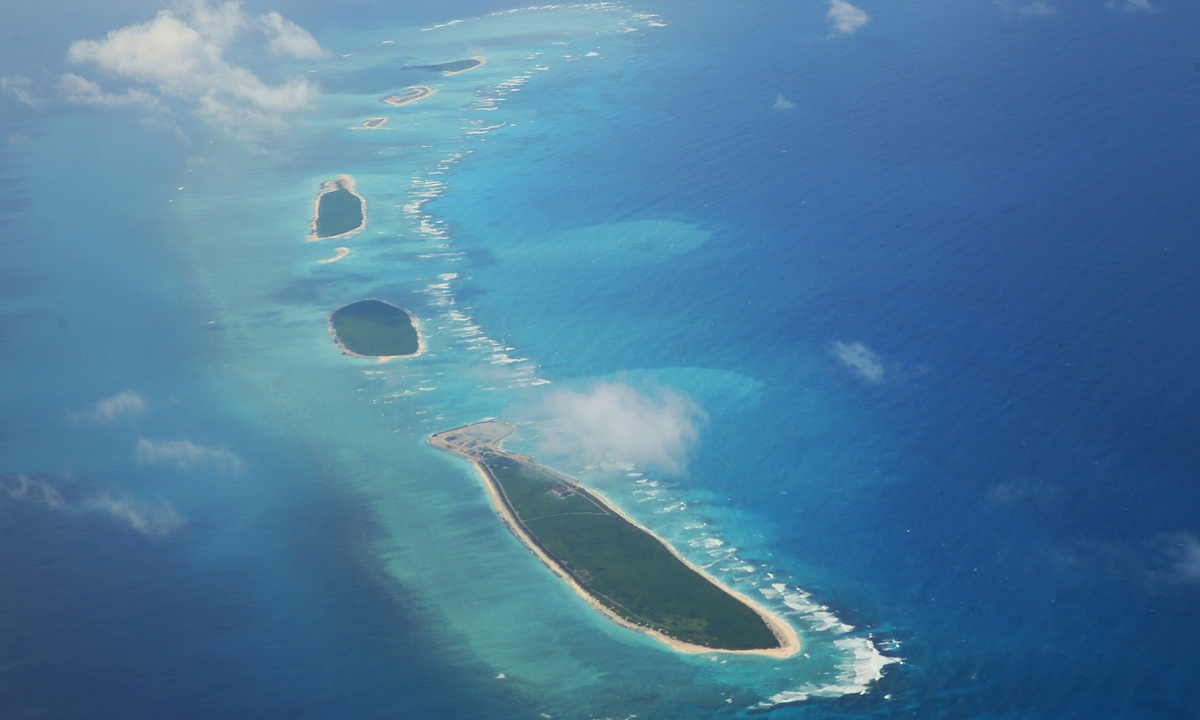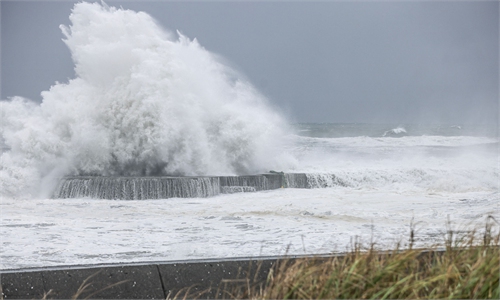China accelerates big data, AI application in ocean industry, anticipating revolutionary changes

South China Sea Photo: VCG
China is making significant strides in utilizing big data and artificial intelligence (AI) in the ocean industry, particularly in marine spatial planning. These technologies are significantly enhancing accuracy and efficiency, and are expected to revolutionize deep-sea exploration and the broader marine industry, the Global Times learned at an event held in Beijing on Thursday.
Marine Spatial Planning Cooperation Workshop of Maritime Silk Road Partner Countries kicked off in Beijing on Thursday, hosted by China Oceanic Development Foundation (CODF).
Representatives from the Belt & Road countries attending the event praised China's efforts in helping them build their marine spatial planning capabilities, while calling for deeper cooperation in developing the blue economy.
Pan Xinchun, Vice President and Secretary General of CODF, told the Global Times that they have employed big data to collect and sort out available information, especially historical records, to analyze the long-term patterns in specific marine areas using AI models. These tools have greatly improved the accuracy and efficiency of studying marine environments, Pan said.
Drones are used to monitor real-time changes in the ocean. Data collected by the drones is processed using big data, enabling precise assessments of marine conditions. This technology has played a crucial role in the drafting and implementation of marine spatial planning, as the effectiveness of the plan and any potential violations can be evaluated, allowing for more scientific and efficient supervision throughout the process, he said.
"For instance, in marine aquaculture, traditional methods would generally waste about one-third of the feed, which sinks to the seabed, resulting in both wasted resources and environmental pollution. Now, with the AI monitoring, the amount of feed can be adjusted accordingly, and intelligent technology can retrieve any leftover feed from the seabed," Pan noted.
China is currently engaged in the R&D of AI-controlled deep-sea robots and is studying the feasibility of deploying them as deep as 10,000 meters below the surface, where the pressure equals 1,000 atmospheres. This would also enable scientists to explore the microorganisms there without having to dive themselves, a task that would be extremely dangerous for humans.
"The development of AI-controlled unmanned underwater vehicles is expected to revolutionize deep-sea exploration and the broader marine industry, achieving goals that were previously unattainable," Pan told the Global Times. "China is making rapid progress in this area, with immense potential for growth."
At Thursday's event, the Global Times learned that the CODF has helped 19 countries form their marine spatial plans, providing assistance in allocating ocean zones based on functions, resources, location, and environment, designating areas for protection or development and ensuring sustainable resource use through policy measures. Among the 19 countries, Cambodia and Thailand have officially implemented their plans as government documents.
Through such collaboration, the foundation has shared over 40 years of China's marine spatial planning expertise, helping these countries create tailored plans that balance resource development, environmental protection, and economic growth. China's endeavor has been warmly welcomed and highly valued by these countries, who expressed their heartfelt gratitude at the workshop.
Representatives from the partner countries also sought China's expertise in developing the blue economy. China was one of the first countries to implement the concept of the blue economy and has since developed a comprehensive framework of policies, standards, and implementation plans.
China is eyeing to help developing countries develop their blue economies including deep-sea aquaculture, offshore wind energy, bio-products, modern fisheries, green ports, high-end shipbuilding, desalination, and tourism. These sectors are largely zero-emission, making them highly efficient and sustainable.
The event was attended both online and in person by some 300 government officials, scholars and experts from nearly 60 countries along the Belt & Road, including 19 that have partnered with the foundation on marine spatial planning and 49 involved in coastal sustainable development capacity-building projects.
The event witnessed the launching of the Marine Spatial Planning Alliance, as well as the release of an initiative for promoting sustainable ocean development of B&R countries.

